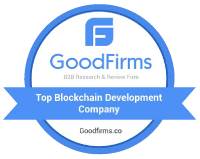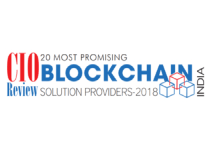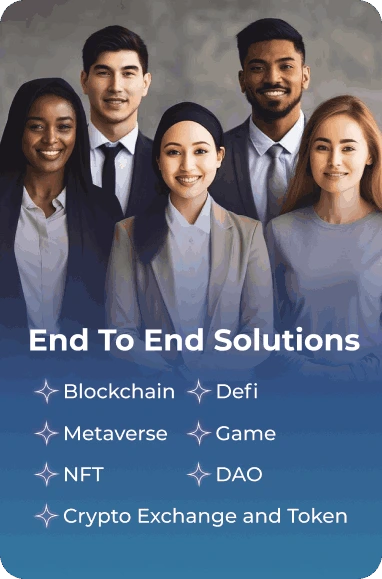Subscribe Our Newsletter
Table of Content
Real-World Asset (RWA) tokenization is rapidly gaining traction as businesses and institutions aim to bridge the gap between tangible assets and decentralized technology. Tokenizing assets, which includes actual estate, bonds, commodities, and great artwork, gives numerous benefits — greater effective liquidity, fractional ownership, reduced transaction costs, and international accessibility.
Choosing the right blockchain platform is critical for building a secure, scalable, and compliant RWA tokenization platform. Below, we find out the top 10 blockchain networks leading the charge in this transformative location.
1. Ethereum: The Pioneer of Smart Contract Innovation
Ethereum remains the most popular desire for RWA tokenization due to its mature environment and smart contract abilities. With aid for token standards like ERC-20, ERC-721, and ERC-1155, it permits seamless advent of fungible and non-fungible tokens. Projects like Centrifuge and RealT rely on Ethereum for asset-sponsored financing and property tokenization.
Despite challenges like high gas fees, Ethereum’s Layer-2 solutions and upcoming enhancements aim to make it a dependable platform for long-term tokenization solutions.
2. Polygon: The Scalable Layer-2 Solution
Polygon addresses Ethereum’s scalability issues by using faster transactions and decreasing gas fees, making it a preferred choice for RWA platforms that need to cater to a broader user base. Its compatibility with Ethereum’s EVM ensures a smooth transition for developers already familiar with Ethereum.
Polygon additionally supports identity verification structures like Polygon ID and Supernets — custom blockchain networks optimized for particular use cases, inclusive of regulatory-compliant RWA platforms.
3. Binance Smart Chain (BSC): High Liquidity & Low Fees
Binance Smart Chain (BSC) is known for its speed, affordability, and reference to Binance’s massive exchange ecosystem. This makes it a realistic platform for launching tokenized assets with instant liquidity.
Its compatibility with Ethereum (via BEP-20 and BEP-721 standards) ensures seamless integration. Platforms like Matrixdock have leveraged BSC to tokenize gold, allowing users to own digital tokens subsidized by real-world gold reserves.
4. Solana: Ultra-Fast and Efficient
Solana’s specific aggregate of Proof-of-Stake and Proof-of-History allows it to process heaps of transactions per second at extraordinarily low costs. This performance is ideal for RWA platforms that require real-time asset transfers or frequent microtransactions.
Projects like Homebase are utilizing Solana to tokenize real estate, providing traders with fractional ownership via NFTs and streamlining hire distribution through the usage of smart contracts.
5. Avalanche: Subnet Customization for Regulatory Compliance
Avalanche's standout feature is its ability to create application-specific chains called "subnets" — ideal for projects that require tailored regulatory frameworks. Its native asset issuance capabilities and fast finality make it an excellent platform for financial-grade tokenization.
Companies like Xalts have collaborated with Avalanche to build plug-and-play RWA solutions for institutional clients, demonstrating their flexibility and scalability.
6. Stellar: Built for Financial Inclusion
Stellar is optimized for cross-border payments and asset tokenization, with built-in features like custom asset issuance and native compliance protocols. Its decentralized exchange (DEX) enables quick and low-cost asset swaps.
Stellar's anchor system bridges fiat currencies and the blockchain, simplifying asset onboarding. Franklin Templeton, a renowned asset manager, used Stellar for tokenizing their U.S. government money fund — a testament to the platform’s credibility in regulated finance.
7. Algorand: Secure and Enterprise-Ready
With its instant finality, low transaction fees, and mathematically proven consensus algorithm, Algorand is well-suited for mission-critical applications. The Algorand Standard Assets (ASA) framework allows the creation of compliant tokens with built-in transfer restrictions and KYC controls.
Real estate tokenization platform Lofty.ai uses Algorand to offer fractional property investments with daily rental income distribution, all handled through automated smart contracts.
8. Tezos: Self-Amending Governance for Future-Proof Platforms
Tezos brings formal verification to smart contracts, reducing the chance of vulnerabilities — a crucial function for dealing with real-world assets. Its self-amending governance model allows the blockchain to improve itself without hard forks, ensuring long-term stability.
Tezos helps both fungible (FA1.2) and non-fungible (FA2) tokens, and its governance features have attracted tasks like BTG Pactual, who released their ReitBZ protection token on Tezos.
9. Hedera: Speed, Fairness, and Finality
Hedera Hashgraph is a unique distributed ledger technology (DLT) that offers excessive throughput and strong performance. It supports tokenization with local services, making it less complicated to construct employer-grade RWA systems.
With governance from top global companies like Google, IBM, and Boeing, Hedera appeals to institutions looking for overall performance, transparency, and trusted decentralization. Its use cases include tokenized carbon credits, real estate, and collectibles..
10. Polkadot: Interoperability and Cross-Chain Communication
Polkadot enables cross-chain communication through its relay chain and parachain architecture, allowing tokenized assets to move fluidly across networks. This is especially useful for RWA platforms aiming for cross-platform liquidity and decentralized finance (DeFi) integration.
Its customizable parachains may be tailored for different jurisdictions, compliance desires, and asset classes, ensuring flexibility and scalability for destiny developments.
Choosing the Right Blockchain for RWA Tokenization
The right blockchain for your RWA tokenization platform relies on several factors — regulatory needs, transaction fees, scalability, compliance tools, and ecosystem maturity. Ethereum and Polygon lead with developer guides and ecosystem integration. Meanwhile, Avalanche and Polkadot offer customization, and platforms like Stellar and Algorand emphasize compliance and performance.
As tokenization reshapes traditional finance, leveraging a blockchain aligned with your business goals will be key to launching a successful and future-ready RWA platform.
For businesses looking to enter the RWA tokenization area with self-assurance, Security Tokenizer stands out as a trusted Blockchain Development Company. With deep information in blockchain technology, compliance-first architecture, and tailored tokenization solutions, Security Tokenizer empowers you to convert real-world assets into stable, tradable virtual tokens throughout the most suitable blockchain networks.
Leave Your Comment
Trending Insights.
Explore More Insights
Top 10 Blockchains for RWA Tokenization Platform Development
Real-World Asset (RWA) tokenization is rapidly gaining traction as businesses and institutions aim t...
Read More...Trending News.
Explore More NewsBook A Free Consultation
Contact us to avail the best services for DeFi, NFT, Cryptocurrency & Token Development, NFT Marketplace Clone Scripts as per your requirements!
Hi! I'm STO AI, Can I help you with anything
today? 🤖










